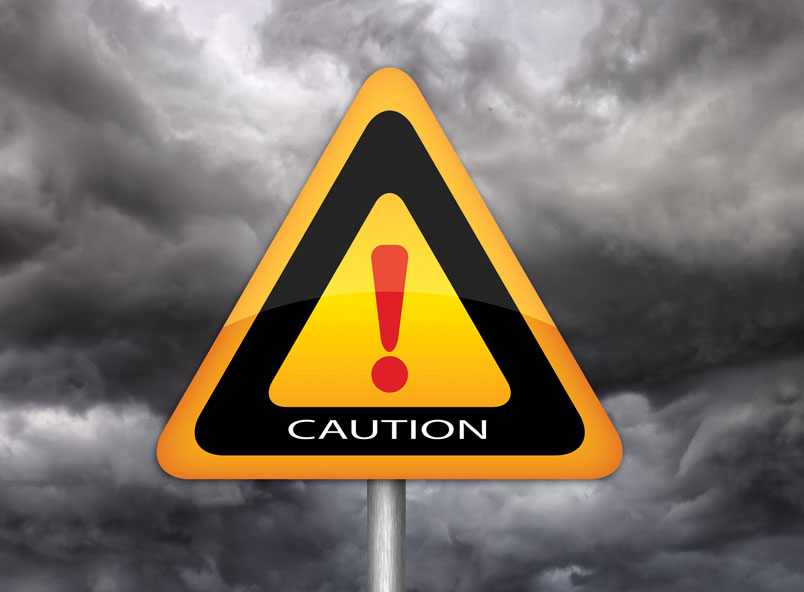



The US decision to slap tariffs on European aircraft and agricultural products after getting the go-ahead from the World Trade Organisation (WTO) is set to spin into a new trade war, on the heels of a long-running dispute with China.
The WTO has ruled that the US can impose tariffs on US$7.5 billion worth of EU products. At the time of writing, the US is scheduled to impose a 10% tariff on airbus aircraft and 25% duty on agricultural and industrial goods effective Oct 18.
Global growth outlook is now forecast at a slower pace, with a weaker trade scenario, as tensions escalate among the top economies.
Outgoing European Commission president Jean-Claude Juncker touched a raw nerve with his remarks on the transatlantic relationship, which is threatened by the WTO ruling.
“Trade wars are easy to start, but escalate quickly and end badly. Whoever starts a trade war will end badly in his own camp,” Juncker said. He added that trade involves more than numbers, as it affects livelihoods and jobs.
His remarks would have hit an ironic note in Southeast Asia, which faces an EU ban on palm oil biofuels from 2030, with the phase-out to commence in 2024. Malaysia and Indonesia plan to take the issue to the WTO.
Only palm oil biofuels have been singled out for the ban, on the grounds of ‘high risk’ to indirect land use change, under the EU’s Delegated Act of the revised Renewable Energy Directive.
Major palm oil companies have already embraced the RSPO, ISCC and MSPO or ISPO certification schemes to meet the demand of European buyers for certified sustainable palm oil (CSPO). The EU ban will crimp even the supply of, and demand, for CSPO.
Trade wars ‘wasteful’
Malaysia’s Prime Minister, the Hon. Tun Dr Mahathir Mohamad, defended palm oil at the UN General Assembly in October, saying that the EU Delegated Act “is a classic case of the denial of free trade”.
Attributing this to Europe’s inability to sustain the competitiveness of its edible oils, he noted that campaigns to date have highlighted allegations that palm oil is “poisonous to health, destroys the habitat of long-nosed monkeys and reduces carbon dioxide absorption”, among others.
Refuting claims about deforestation, Dr Mahathir pointed out that Malaysia’s forest cover stands at 55.3%, exceeding the pledge made at the Rio Earth Summit in 1992 to maintain at least 50% of the land mass under forest.
This is far higher than the situation in most European countries. According to Eurostat, forest cover within the EU-28 in 2015 was about 38% of the total land area. While this was higher than the global average of 30.7%, it was well below Malaysia’s achievement.
The Malaysian government has also set the maximum arable land for oil palm cultivation at about 6.5 million ha by 2023.
Despite the talk about free trade, Dr Mahathir said new regulations are being introduced all the time to the detriment of development in poorer countries, as evident in the Trans Pacific Partnership Agreement.
Trade wars are wasteful and stultify the potential for everyone to prosper, he said. The Delegated Act, for instance, will affect the livelihood and standard of living of small farmers, who depend on growing oil palm as a source of income.
“We appeal to the good sense of the rich not to impoverish us, not to deprive hundreds of thousands of our workers from earning a living. You will be doing a good deed by consuming palm oil,” Dr Mahathir said.
A new line-up in the European Parliament, Commission and Council will mean new policies and demands on the food and agriculture sector. New policies may not mean better outcomes if these hinder free and fair trade.
According to Ag Perspective, European Health Commissioner-designate Stella Kyriakides has been told by MEPs to reduce the use of pesticides, get rid of endocrine disruptors and glyphosate, say ‘no’ to GMOs and ensure that imported foods comply with the same standards as in Europe.
This means that the palm oil sector must brace itself again to comply with additional policies and standards relating to the environment and health in the EU. It would be useful to draw up a long-term strategic plan that systematically addresses fresh concerns and global requirements.
Belvinder Sron
Deputy CEO, MPOC